- Home
- Elizabeth Gaskell
Uncle Peter
Uncle Peter Read online
“I was saying, sir, that I had passed the day at Elsmore.”
“Yes, I heard you, and if anything could add to the pain which your continual visits there give me, Charles, it would be the necessity that we should talk about them together.”
A long silence succeeded; Mr. Peter Merton looked into the fire with contracted brows, his nephew's cheek flushed for a moment; he moved nervously and uneasily upon his chair; and eventually subsided into the same occupation which engrossed his uncle.
It was a small room in a very large house in which they sat; the evening was chilly and damp though it was yet but August, and the blazing fire upon the hearth, and the bright decanters upon the table, were the only genial-looking objects in the apartment; the chairs (there were but three of them) looked uneasy enough; the walls, covered with a faded paper, were bare and unadorned; there was scarcely any carpet, and very little furniture in the room. A large old-fashioned clock ticked with a loud and monotonous sound in the corner, filling up but not relieving the pause in the conversation.
“I saw you speaking to Thompson at the lodge to-day; what does he say about the birds this season?” said the elder of the two gentlemen at length, with a kindly voice, as if he wished the discourse to flow easily into its ordinary channels.
Now, there is nothing more troublesome and disconcerting when you have something on your mind which must be spoken, and have determined to speak it, and brought round the conversation to the point at which it might naturally be spoken, than for your companion to decline all communication upon the one to you absorbing subject, and to diverge into the commonplace interests of daily life.
Captain Merton was precisely in this uncomfortable and perplexing position; his task was made the more difficult undoubtedly from the way in which his last observation had been received, but it must be performed notwithstanding, and no amount of delay would make it much easier than it was that moment.
“I don't know anything about the game,” he replied therefore, “it was about something else, dear uncle, I wished to speak to you.” He paused, and his voice faltered slightly, and his colour came, though his brow grew fixed and determined as he went on,--“it was about Elsmore.”
His uncle's face darkened visibly again, but he did not speak.
“It was about Elsmore, sir,” the young man proceeded, “that i wished to speak to you, and about one of its inhabitants; had I seen one shadow of reason for the unaccountable prejudice which you entertain against the family, I could never have continued an intimacy with it, which, as you know, was commenced involuntarily; on the contrary, however, each succeeding day has shown me in it some fresh trait of simplicity and goodness, and such true nobility as had you, dear uncle, accepted Lord Elsmore's overtures to your acquaintance, you would long since yourself have been the first to acknowledge.”
“To what is all this long preamble leading, Charles; has your young friend, Lord Bertrand, condescended to borrow a cool hundred or two, and cannot you transact the business without your rich uncle's intervention,” said the old man, with a bitter smile, “for this,” he added, is the common end and object of such intimaces as yours and his, the son of a London merchant with the son of an English earl.”
“My mother's family was as noble as his own,” exclaimed the young man.
Uncle Peter trembled and turned pale, and grasped rigidly the arms of his cushionless chair. Captain Merton saw at once the impropriety of an exclamation addressed to his paternal uncle; but it was no moment for apologies, his tale must be told, and it was not even, as he had hoped it would have been, guessed in part ere he told it.
“It was not about Lord Bertrand that I wished to speak,” he continued, “but about his sister, Lady Helena.”
He paused. His uncle might surely now have relieved him from any further disclosures; there is but one cause which commonly induces a young man like Captain Merton to speak thus formally to an elderly uncle and his guardian, about a young lady of his acquaintance; but Uncle Peter sat pale and motionless; nothing could be more discouraging than that grim expression which came over and settled upon his countenance, from which even the red gleam of the firelight which fell upon it could not remove its present white unusual hue.
“About Lady Helena, for whose hand I wish to make proposals to Lord Elsmore, but before I do so, wish for your advice and approval of the step.”
“Advice and approval! Me advise you to marry, or approve of your marrying any Lady Helena in the land,” broke out the old man at length; “no, Charles; come to me, and tell me you wish to marry the daughter of my gamekeeper, my bailiff, the poorest cottager on my estates, anything but a daughter of that proud false class to which Lady Helena belongs. But no,” he continued, after an interval, during which he had risen from his chair, and paced the room in an agitated manner; “no, no, all this excitement is unnecessary; make your proposals, my boy, and see if your high friends will listen to them when you tell them that by making them you forfeit the countenance of your rich uncle, and lose all hope of becoming his heir.”
“I will tell them so,” exclaimed the young man, “and by their receiving such proposals shall they be judged.”
He stood up as he spoke in the grace of his tall firm figure, his head thrown back, a deep settled resolution stamped upon every line of his handsome, high-bred features; but a gentleness stole over them as he gazed upon the aged trembling figure that confronted him; there came back such memories of ancient kindness, and anxious tender care for him since his childhood; there passed before him the vision of such a dreary desolate old age for himself should the consummation which the old man threatened really take place, that he could make but one effort to induce him to relent.
“Uncle,” he said, you know me, and you know that I have not, that I never had one mercenary thought about your wealth; you know that my fault is to look forward too little in such matters rather than too much, and therefore I dare beg you to reconsider the words which you have uttered; it was idle I know to ask your advice and approval when my own determination was already made. I felt that it would be thus, or I should have consulted you before, as now it is impossible for me to draw back.”
“Impossible to draw back! You have not surely proposed, sir, and been accepted on the strength of expectations which you have no right to entertain.”
“I have said no word to Lord Elsmore, but I have said to his daughter that which a man cannot unsay. Oh, uncle, could you but see her, so good, so gentle, so beautiful, so true; go to the cottages on their estates, and see if she is that which you conceive the women of her class to be.”
The old man walked slowly to an old bureau, which stood between the two windows of the room; he unlocked it, extracted from it a large flat case of purple morocco; he touched a spring, the lid flew open; he did not glance at what it contained himself, but offered it at arm's length to his nephew.
“Is she as beautiful as that?” he said.
Captain Merton received the case: there was within it the miniature of a most lovely woman. It was a full length figure of exquisite proportions; the dress was of dark velvet, on which sparkled diamonds, which were seen too in the rich masses of her deep brown hair; a young child played at her feet, but seemed out of keeping with the principal figure, whose excess of beauty, eastern, regal, and voluptuous, suggested no one association of the calm joy of domestic affections and maternal love; the lady's eye glanced not downwards on the tiny figure beside her, but full upon you, with a certain tremulous passion which the painter had well depicted in its dark depths.
Charles Merton gazed upon it, fascinated as he gazed; was it a real or a fancied reminiscence which seemed to associate that proud brow and glowing cheek with some faint far off distance in his own life?
“Who is
she?” he asked at length,tell me, uncle, who is this?”
“I will tell you what, and then tell you who. She, too, was an earl's daughter--the daughter of a poor, proud, English nobleman; she married a rich commoner, one sprung from the people; she married him for his fortune--it was princely; she spent it, or most of it, and then left him, choosing for the partner of her guilt one of that class of “true nobility,” as you called it, from which she had condescended to descend. It was your mother, Charles. Go to Lord Elsmore now with your proposal, but beware of the misery and the sorrow which spring from such missorted marriages.”
Captain Merton gazed still upon the picture.
“Where is she now?” he asked, faintly, at length.
“She is dead,” replied his uncle, briefly.
The young man still kept his eyes fastened on the lovely face; it seemed, as he looked, that the brightness faded from the tints, that the face grew pale and sorrowful, and the eyes dim; his own indeed were wet with tears. It was a history for which he was already in some degree prepared by the half hints and half concealments with which all mention of his mother's name had been always surrounded.
There came back fully now the memory of that face; it was the same which once, long years ago, had bent over his little bed, and when he raised his own to meet it, had left a tear instead of a kiss upon his infant cheek.
When Captain Merton found himself in his own apartment that night, he contemplated his position should his uncle persist in his lately avowed intentions; but the contemplation made no difference in the decision which he had already come to. He would make proposals on the day following to Lord Elsmore for his daughter's hand; he had nearly two thousand a year of his own, the income resulting from the remains of his father's once enormous fortune, carefully nursed during his minority, which had but lately expired, by the careful hand of his uncle; he had his commission, too, and he thought still that Lord Elsmore would not be unfavorable to his suit; as for Lady Helena, he never dreamed for one moment that any change of worldly prospect would alter the feeling which she had owned herself as entertaining towards him, when he parted from her the preceding day upon the terraces of Elsmore. The room in which the young man indulged in such reflections was vast and well lighted, and furnished with all the appliances of modern luxury, amidst which his valet moved noiselessly as he made such arrangements as were necessary before leaving his master for the night.
But there was another chamber, rude, scarcely furnished at all,in a corner of that vast mansion, into which the gilded visions entered not which soon filled the brain of the young man. Dark shadows hung over the spirit of Peter Merton that night, shadows which never had been quite absent from his life, but which came to him now deepened and intensified as they had not been for years. The words which his nephew had uttered had seemed to shut out all light from that future to which he had seldom been prone to look for any very great accession of enjoyment. And the past rose before him; scenes never forgotten, morbidly brooded over in his solitary life, once more were spread before his eye. Charles Merton had been his only brother, and he had loved him with more than fraternal affection--an affection the almost passion of which manhood and succeeding years had only deepened; it had withstood the jeering remarks of his fellow-schoolboys (no light test) in early days, and in later ones, the hard, cold, separating influences of that business life in which many of his own succeeding years had passed. When Charles Merton married the high-born and beautiful Lady Augusta Trevor there came indeed a break in the intercourse which had subsisted between thebrothers, but in the breast of one of them at all events the old feeling was never eradicated or diminished. Surrounded by a gay and dissipated circle of the then fashionable society of the day, Lady Augusta discouraged indeed the frequent visits of Mr. Peter Merton as far as lay in her power, and her husband, weak in character, and acting entirely under her own influence, made no effort to draw his brother into a phase of society which he saw plainly was repugnant to his tastes and uncongenial to his habits. There, however, in the drawing-room of his sister-in-law, during his brief visits, had Peter Merton imbibed those prejudices against the class to which Lady Augusta belonged, from conduct which might well have justified him in disapproving of certain individuals who composed it. He had seen his brother laughed at behind his back, and himself to his face, by individuals inferior to them in both in everything but the mere accident of birth. All this might have been forgotten, but the events which succeeded, Lady Augusta's reckless extravagance, her flight with Lord Marchdale, his brother's blighted life, which was not protracted long after the occurrence, the bitter sense of his own errors which had led to so dreadful a result that haunted Charles Merton at the last, his almost dying request that his son might, if possible, be spared such a career as his own, had confirmed every prejudice in his mind, and made him determine that the young child left to his charge should be shielded from all contact with that class of society which had wrought his family such grevious wrong and misery. He kept aloof from all the noble families in his neighbourhood, and brought up the boy in the strictest seclusion--a seclusion which was made vain and useless, however, by the ardent and unceasing wish conceived in early boyhood, and confirmed by advancing years in the young Charles for a military life. In vain had his uncle attempted to dissuade; a life of idleness was distasteful to him, and no other profession but that of arms tolerable. At last a sort of compromise was effected; his name was put down for a commission, but he consented meanwhile to go to college, his uncle hoping that the new associations of the place would succeed in diverting him from his boyish purpose. But it was not so; he passed creditably through Oxford indeed, took his degree there, and then claimed the fulfilment of his uncle's promise; that if his desire after that continued unchanged it should be gratified.
A commission was without difficulty procured, and all the care with which his uncle had kept himself and the boy seculded from the neighbouring nobility of the county was made futile by the circumstance of Lord Bertrand, the eldest son of Lord Elsmore, being in the same regiment with Charles Merton, and soon becoming his most intimate friend.
All this the old man reviewed in his rude and lonesome chamber, and he too came to his determination--that should this marriage which was in his neqhew's thought take place, it should close all interest or interference on his part in his concerns.
Captain Merton was seldom down in time for his uncle's early breakfast, which was invariably succeeded by a walk across the park, where the old man might be seen in the early morning treading the short grass in his stout shoes, and dealing destruction to the thistles, if any such could be found, with “the spud,” which he invariably carried--the only formidable implement he had been ever known to wield.
Uncle Peter was not a man to be put out of the mechanical exactitude of his life by a sleepless night and an unforseen emotion; he took his usual walk, therefore, on the morning following the conversation we have related, confirming himself, with each step he took, in the decision at which he had arrived. As he approached the house on his return he saw Captain Merton's dog cart and servant at the door, and entering the hall found his nephew pulling on his gloves preparatory to issuing forth from the house.
“Good morning, uncle.”
“Good morning, Charles. May I ask where you are going so early?”
“To Lord Elsmore's, sir; I wish to find him at home; and am most certain to do so by going at this time.”
“Can you let me say one word with you before you go?”
“As many as you please, sir; but I fear they will not alter my purpose.”
They walked together into the room in which they had sat the preceding evening; both were perfectly calm with the calmness of a settled determination which the words of neither should alter.
“Charles,” said the old man, you will tell Lord Elsmore simply and truthfully what your own fortune is, I am sure; and you will tell him that after taking this step you have nothing to hope for from me; but you are bound to
tell him more, I think--the nature of the last engagements which I satisfied for you before attaining your majority.”
The young man's brow grew crimson.
“I shall say, sir, all that is necessary for a man of honour to tell him who aspires to his daughter's hand--no less, no more.”
They parted; the light wheels of the young man's carriage glided swiftly over the smooth road that led towards Elsmore, but his heart yet more swiftly traversed the distance, and had acted and reacted the interview which awaited him long ere he arrived at the gates of the old mansion.
And the old man--he sat all the morning long in that small, bare study, bowing beneath the burthen of that desolate existence which henceforth he felt awaited him to his grave. Did his purpose falter? No, it gained strength by the very misery which he foresaw would attend its execution.
Lord Elsmore received the young man kindly, and his suit not unfavorably. He had, indeed, perceived for some time the affection which had grown up between Charles Merton and Lady Helena; and had he felt that their union was undesirable, or impossible, he would have long ere this put an end to their intimacy. The change in the young man's prospects was related to him. Lord Elsmore looked grave, for he was not a rich man, and having a large family, could give little to his daughters; but it was too late, he felt, to commence an opposition to what, if opposed at all, should have been opposed long since; and his consent was finally obtained. Captain Merton, it was arranged, should still continue in the army, exchanging only into the household troops to avoid the chance of foreign service. And did he make the disclosure to Lord Elsmore that his uncle had so seriously urged him to make? No; he thought it useless and unnecessary. He thought, as he drove along through the clear air, that it was as superfluous as it would be undesirable to confess to Lord Elsmore every foible of his boyhood, from which he felt that he had now emerged and emancipated himself for ever. Had he known how deep a shade the offences of the past throw over the present, he might not have felt so light and careless as he did; or had he reflected how entirely the circumstances of temptation amongst which he had before fallen had been removed from his path, he might have doubted whether he were himself so changed that, should he again be placed amidst such, he might not fall again precisely as before. But he felt and reflected not thus that day: the present was enough. He had no regret for the past-- no misgiving for the future. The hours flew on rapidly and unmarked, as he sat by the side of his betrothed in the stately saloons of Elsmore, or roamed with Lady Helena through the park and woods, which had not yet lost one tint of their summer beauty.

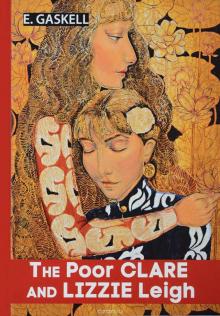 Lizzie Leigh
Lizzie Leigh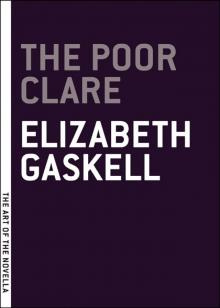 The Poor Clare
The Poor Clare Lois the Witch
Lois the Witch North and South
North and South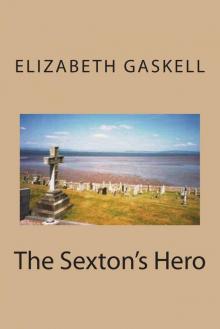 Sexton's Hero
Sexton's Hero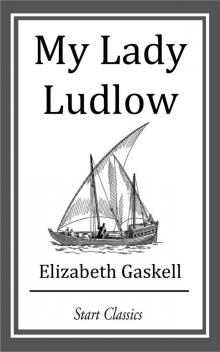 My Lady Ludlow
My Lady Ludlow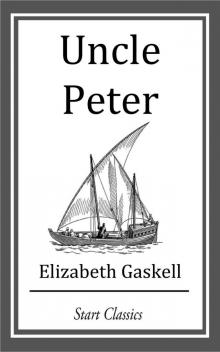 Uncle Peter
Uncle Peter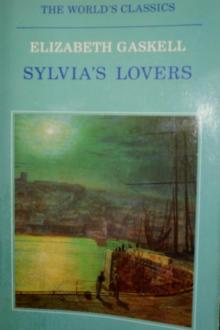 Sylvia's Lovers Elizabeth Cleghorn Gaskell
Sylvia's Lovers Elizabeth Cleghorn Gaskell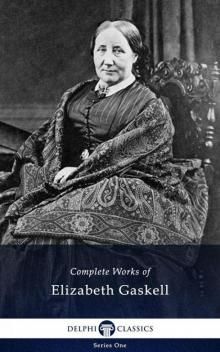 Delphi Complete Works of Elizabeth Gaskell
Delphi Complete Works of Elizabeth Gaskell The Grey Woman
The Grey Woman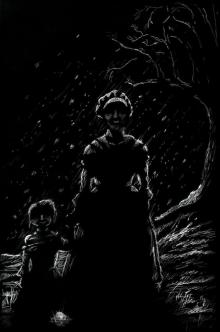 The Old Nurse's Story and Other Tales
The Old Nurse's Story and Other Tales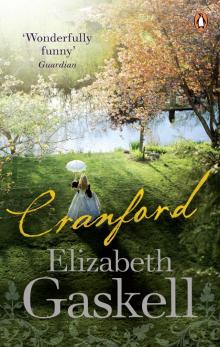 Cranford
Cranford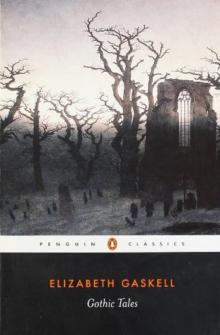 Gothic Tales
Gothic Tales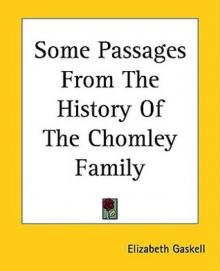 Some Passages From the History of the Chomley Family
Some Passages From the History of the Chomley Family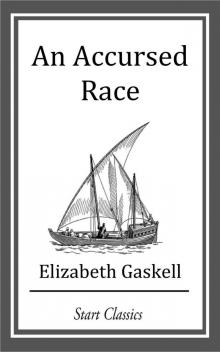 An Accursed Race
An Accursed Race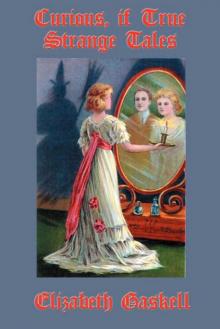 Curious, if True: Strange Tales Elizabeth Cleghorn Gaskell
Curious, if True: Strange Tales Elizabeth Cleghorn Gaskell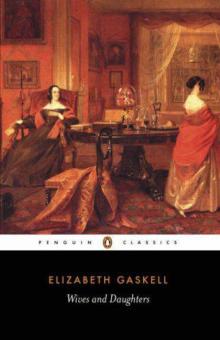 Wives and Daughters
Wives and Daughters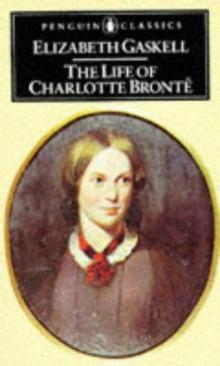 The life of Charlotte Brontë
The life of Charlotte Brontë